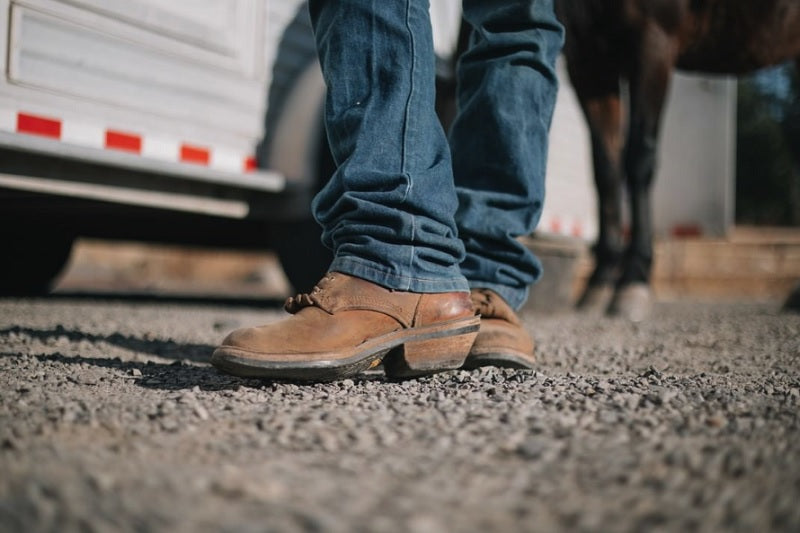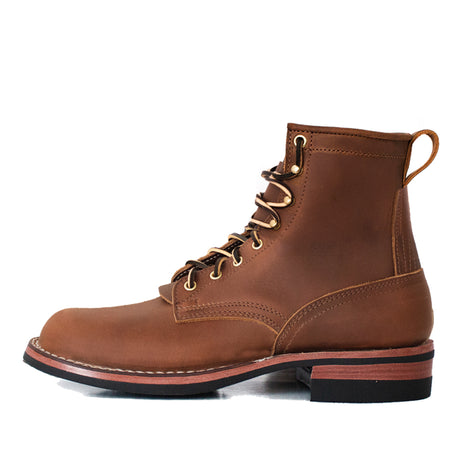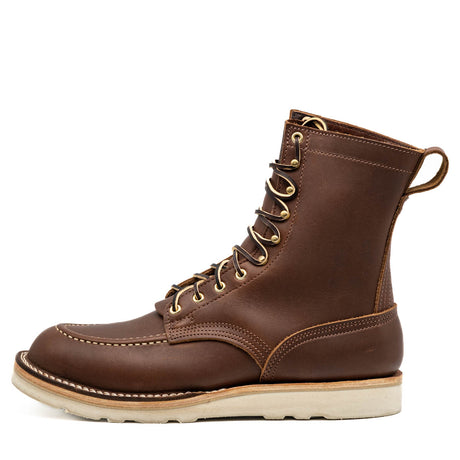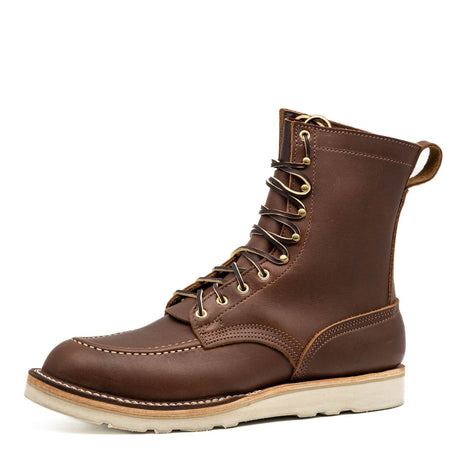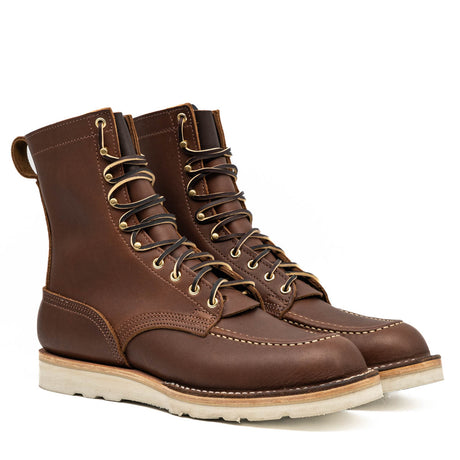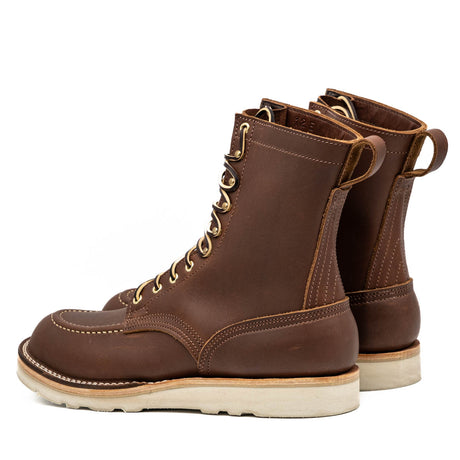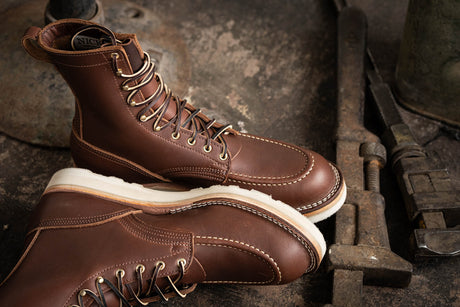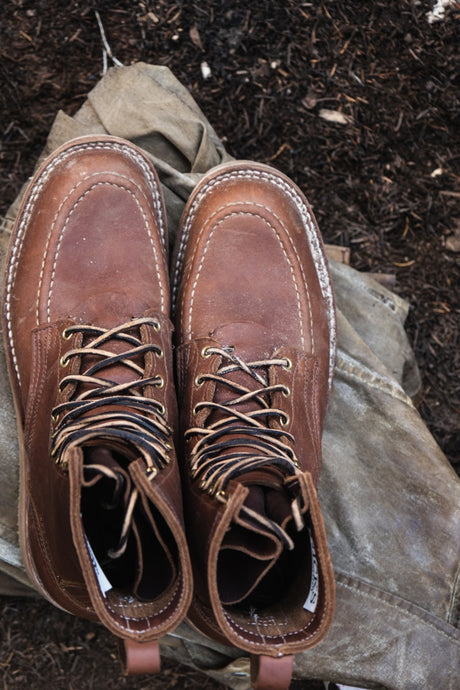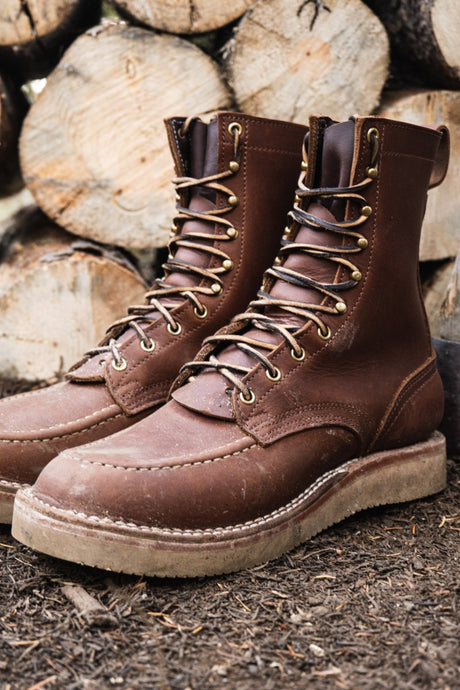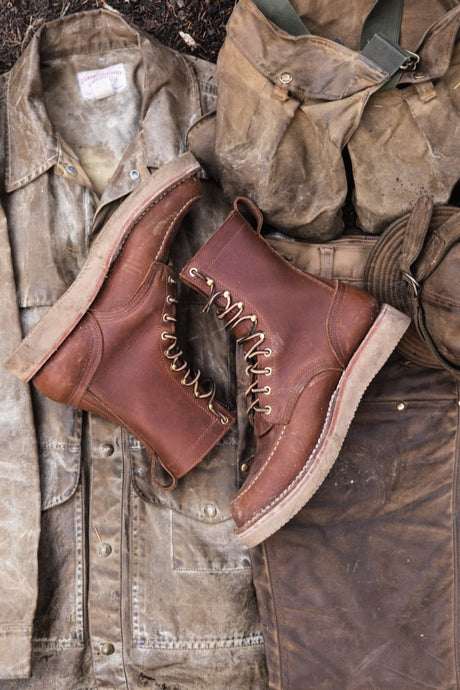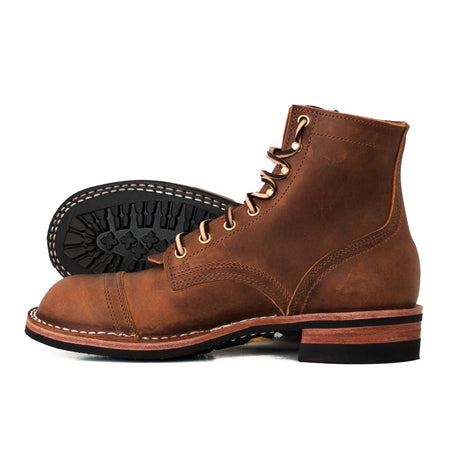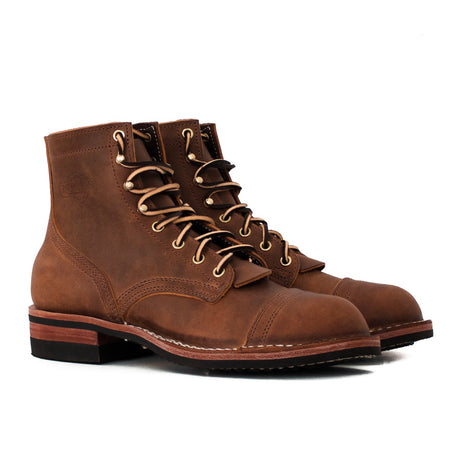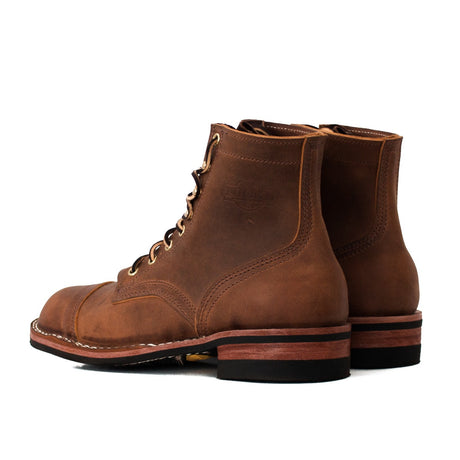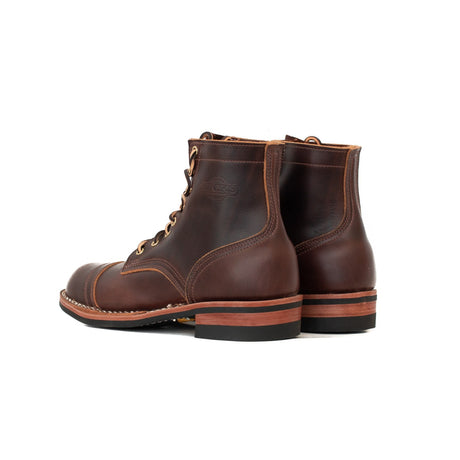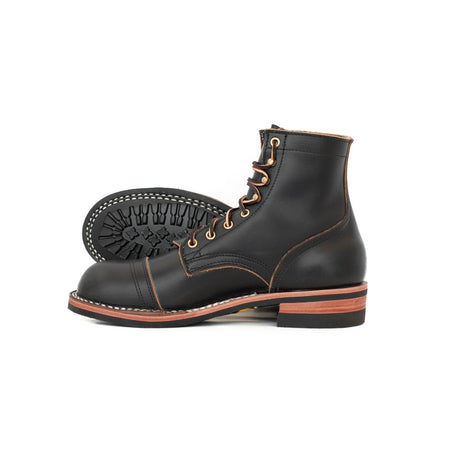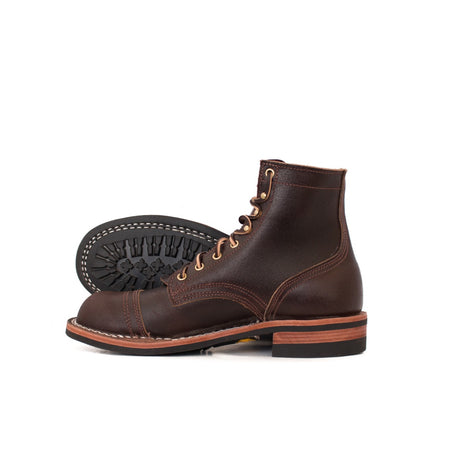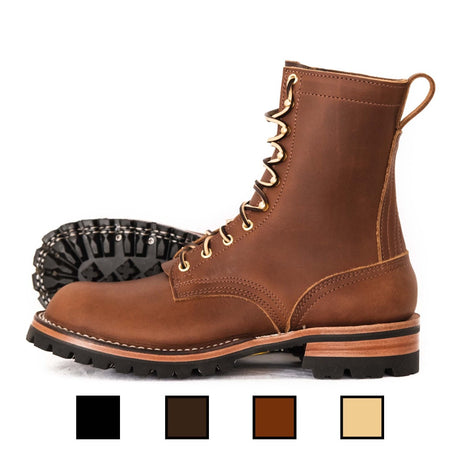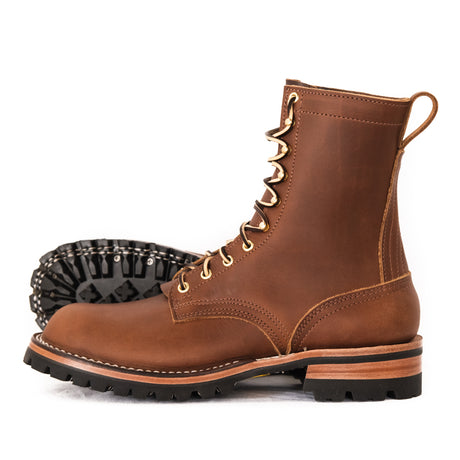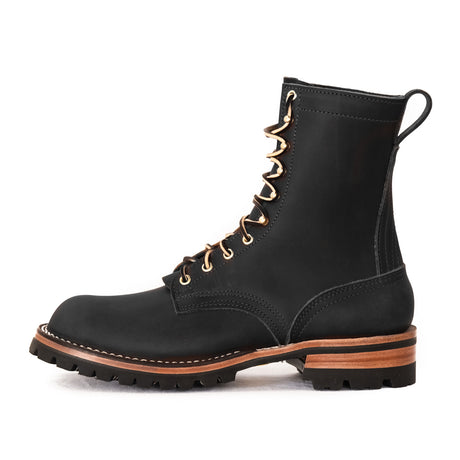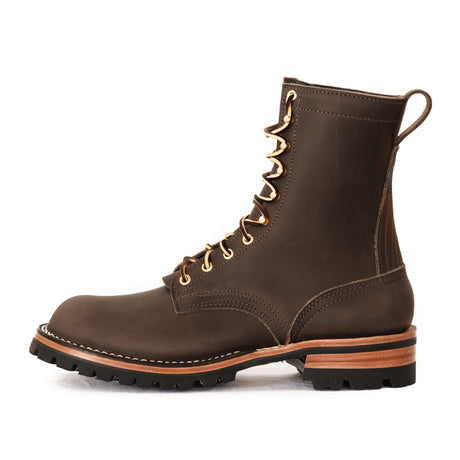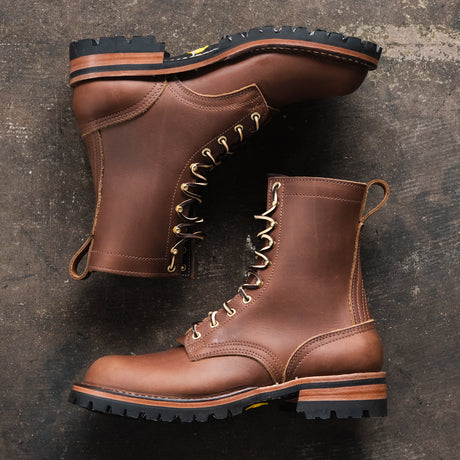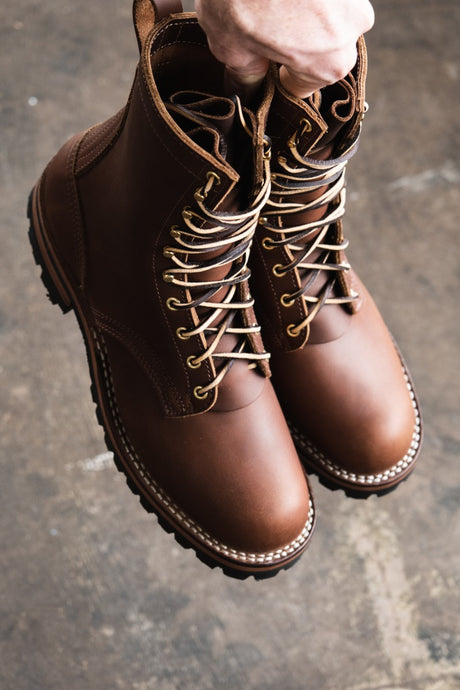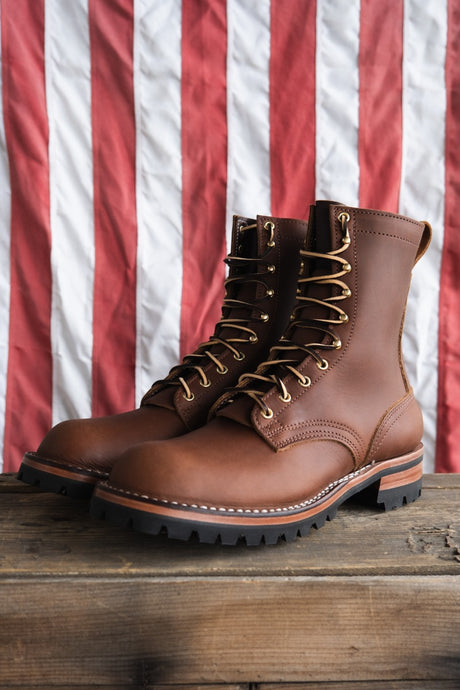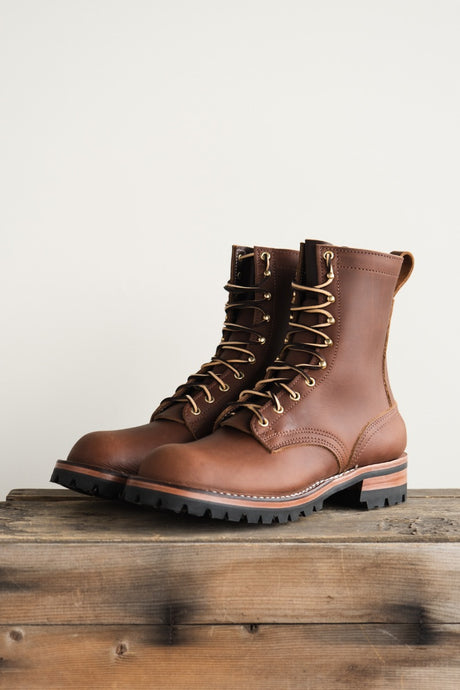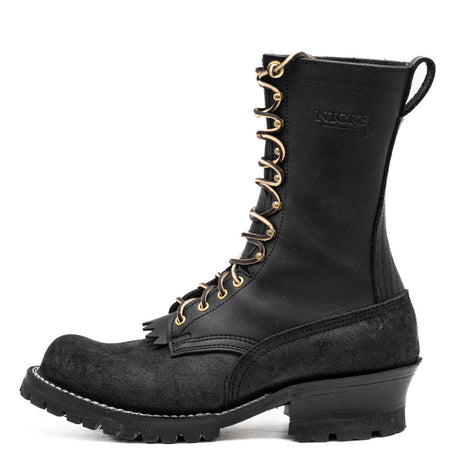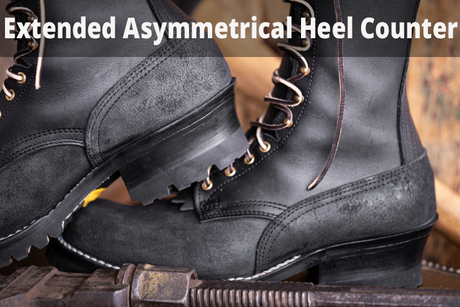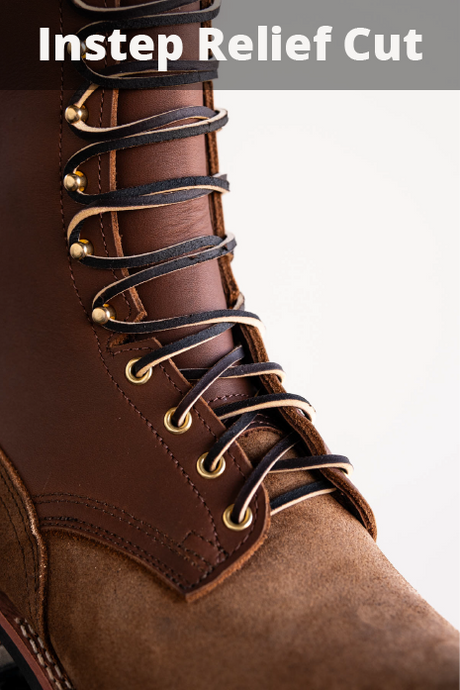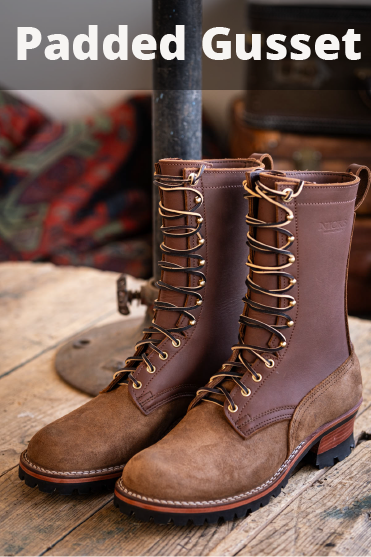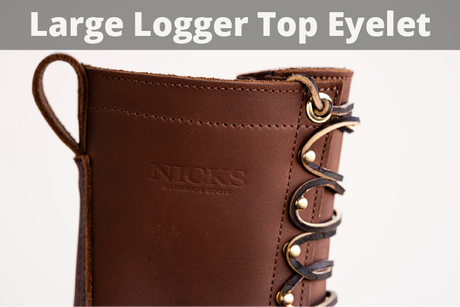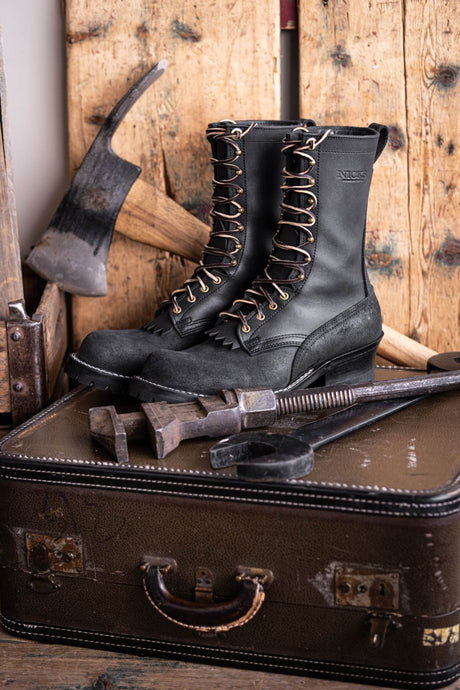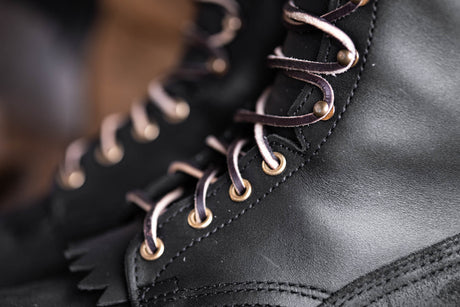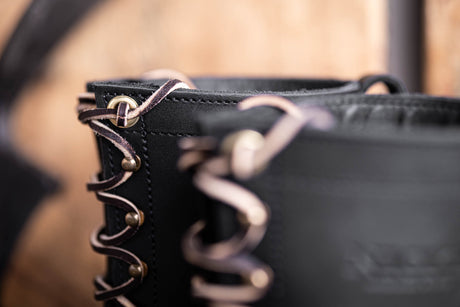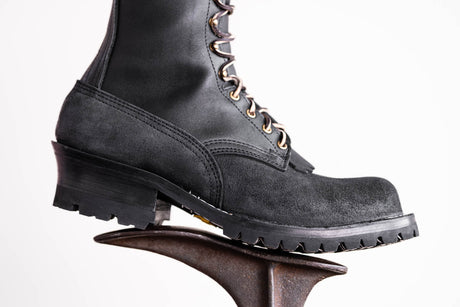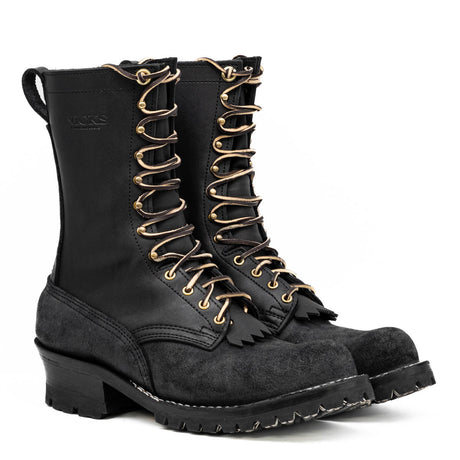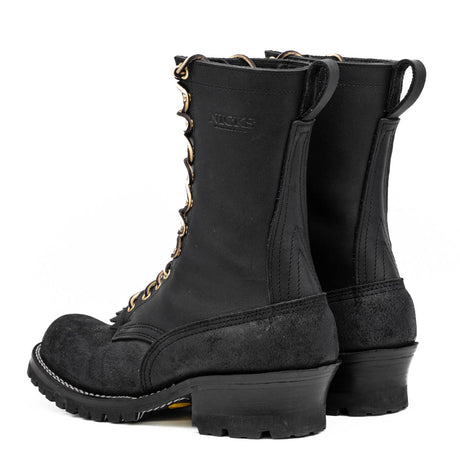Do you need raised heel work boots? Some people definitely do, but some people find that they don't.
For some people, a raised heel is a necessity when it comes to a pair of work boots and for some it isn't. Partially it depends on your trade, as a raised heel has certain attributes that a flatter heel doesn't when it comes to stability, and it also partially depends on your feet, as a raised heel has certain attributes when it comes to fit.
Raised Heel Work Boots Are Best For Climbing or Uneven Ground

Where a raised heel is most advantageous, when it comes to work boots or any other type of practical footwear, is when you're working or otherwise traversing uneven ground. They are also necessary for people who do a lot of climbing, such as arborists and linemen. If you find you ascend a ladder often - at least daily - then a raised heel can be a very good idea.
In times gone by, a raised heel was needed to ride a horse, which led to the cowboy boot and other boot styles, including packer boots.
Why a raised heel matters in this instance is that the extra lift at the heel raises the profile of your foot, loading your center of gravity a little forward onto the ball of the foot. Not entirely, but distributing a little more in that direction.
Those of us who played much sports probably know where this is going.
You have better balance when your center of gravity is over the ball of the foot rather than the heel. While the effect with raised heel boots isn't dramatic, and in fact is basically indetectable indoors, you'll start noticing it when walking on broken or uneven ground. The gap between the heel and the front tread is also useful when climbing ladders or power poles.
This is why the classic logger boot, lineman boot and wildland fire boots all typically feature a raised heel. There is a practical reason. People in those trades need all the support and balance they can get. The person working in, say, residential construction certainly needs a stout work boot, but do they need that kind of heel profile?
Not unless they find it more comfortable or have an orthopedic need for it.
Work Boot Heels And Foot Health

Naturally, a good pair of work boots is an investment in protecting your feet and ensuring your comfort. Part of why Nick's Boots strenuously suggests that you either come into our showroom, contact us for a consult or visit one of our dealers for a work boot fitting is the better your boots fit you, the better they'll feel and the less likely a niggling or major injury will occur due to how your boots wear.
Poor fitting footwear in strenuous environments is a recipe for all sorts of injuries, including foot, ankle, lower leg, knee and lower back injuries. That's why so many of our customers find their comfort on the job increases after getting a pair of our boots!
Your foot's natural arch profile can require a particular type of heel profile for best results. People with flat arches or other podiatric conditions (such as chronic plantar fascitis) often require more heel support in order to not be pained by walking.
People who work on hard concrete, such as in a warehouse or factory, may also find they need a bit more shock absorption in their work boots over time.
In such instances, a raised heel is also indicated, as the increased arch support can ameliorate their foot pain or provide the necessary insulation from repeated shocks, which can lead to hairline heel fractures, or as time and abuse take their toll.
Or you might just find it more comfortable. Ultimately, you have to comfortable in your boots, and whatever gets you there...is the kind of boots you should get.



